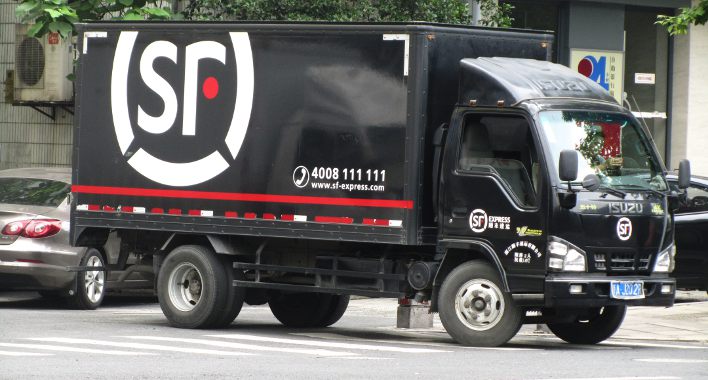
How to Protect Yourself From Coronavirus – Index
- What is the new coronavirus?
- Wash your hands frequently
- Does it help to wear a mask?
- Where to buy soap/masks?
- Avoid crowded places, if you can
- Cover your nose and mouth when coughing and sneezing with a tissue or flexed elbow
- Are there any other recommendations?
- Is the coronavirus dangerous for everyone?
- Is it safe to receive a letter or a package from China?
Since December 2019, China has been battling with a new type of coronavirus referred to as Novel Coronavirus. The situation has escalated and we’ve also seen confirmed cases and deaths outside of China’s borders.
Countries like the US, Russia, and Singapore have closed their borders and banned foreigners who have recently been to China. Hopefully, the situation will turn to the better soon, but there are some protective measures you should pay attention to, minimizing the risk of becoming infected.
In this article, we review how you can reduce the risks of contracting the new coronavirus. Let’s start and review what the coronavirus is and what similarities it brings to other viruses we’ve seen in recent years.
What is the new coronavirus?
Coronaviruses have existed before and a family of viruses that attack the respiratory system. The virus is encircled by a spiky fringe, thereby its name corona, which means crown in Latin.
Even if most of the coronaviruses (there are plenty of them) mostly infect bats, birds, and cats, there are seven viruses, including SARS, Covid-19, and MERS that also infect humans.
Up until today’s date, it’s unknown from which animal the Covid-19 virus comes from. SARS, on the other hand, was transferred from bats to civet cats to humans, while MERS was transferred from bats to camels, and later to humans.
if you want to learn about the number of cases, deaths, recoveries and other stats, you can check WorldMeters, which updates the numbers in a daily basis.
Wash your hands frequently
Washing your hands with soap and water is the best way to avoid spreading and contracting the coronavirus. In the initial stage of the spread, many people only paid attention to the importance of wearing face masks, often surgical masks.
However, the coronavirus has been found on everything from doorknobs to elevator buttons and spreads easily if you’re not careful with your hand hygiene. If an infected person coughs or sneeze in your vicinity and you scratch your eye, there’s a high risk that you might get infected.
According to the World Health Organization, you should wash your hands often and with an alcohol-based hand rub/soap and water. The simple reason is that the virus will die if it’s in your palms.
If your hands are visibly dirty, you should wash your hands with soap and running water. If your hands are not visibly dirty, clean them with alcohol-based soaps/rubs and water.
So does hand sanitizers work?
Doctors recommend hand soaps, but hand sanitizers can be used as an alternative if you have no access to soap and with an alcohol content of at least 60%. You have to use a sufficient amount of it and rub it over your hands for around 20 seconds, letting it dry naturally.
Does it help to wear a mask?
To many people’s surprise, wearing masks is far from being as effective of washing your hands frequently. If you check WHO’s website, you won’t even find any recommendation for the public to use masks, even if the authorities in places in Hong Kong encourage their citizens to do so.
The Center for Disease and Control Prevention doesn’t recommend it for the general public either. With that said, masks help to some extent, but won’t protect you completely. N95 masks are your best option as they are capable of filtering smaller particles. These also fit tighter to your face compared to surgical masks.
Some doctors even claim that it’s to use disposable gloves instead of masks. Besides, some shopkeepers and websites have profited due to the increased demand for masks.
In countries like Vietnam, some shopkeepers won’t sell you masks and tell you that “they’ve run out”. However, the real truth is that they’re stock-piling masks and wait for the price to go up.
Authorities also claim that the strong demand for masks might leave health-workers without a necessary supply.
I am not saying that you shouldn’t wear a mask. But, instead of just focusing on wearing a mask, try to wash your hands as often as possible, eat vitamins, and try to keep your immune system strong.
Where to buy soap/masks?
With millions of people panic-buying masks, we have (not surprisingly) started to see a shortage of these products in some places.
In China, people have been waiting outside factories producing masks and waving with 100 RMB bills in their hands. Western countries face a similar issue and in the UK we saw an increased demand of 846% of face masks on Amazon in just 24 hours, as pharmacies run out of the product.
If you’re not capable of finding face masks due to shortage, try to stock up on hand soap and sanitizers with an alcohol content of 65% – 95% instead. This is proven to be more effective to protect yourself from the virus.
We don’t see a shortage of hand soap and sanitizers in the same as we do for masks.
Avoid crowded places, if you can
Factories, offices, and schools have prolonged the Chinese New Year holiday in countries like China and Vietnam. The reason is that the authorities want to keep the public from the streets, where the virus spreads most easily.
If you want to protect yourself fully from the virus, try to avoid crowded places such as concerts, the gym, cinemas, flights, I think you get my point. This is especially the case in countries that have seen many cases of infected people.
Cover your nose and mouth when coughing and sneezing with a tissue or flexed elbow
This is also one of the most important practice to prevent spreading the virus. If you cough or sneeze, cover your mouth with a tissue and immediately throw it away. You can also cover your mouth with a flexed elbow.
The most important thing is that you don’t sneeze in your hands and touch objects or people around you. If you accidentally sneeze in your hands, wash your hands thoroughly with soap and water.
Are there any other recommendations?
In addition to the above, there are a number of recommendations for how you can reduce the risk of spreading or contracting the coronavirus. Below I’ve listed some of the most important ones.
Avoid close contact with anyone with cold or flu-like symptoms
This is kind of self-explanatory, but you should try to stay away from people with cold or flu-like symptoms. This is especially the case if a person has a fever.
In China, 60 million has been put in quarantine and the government is even in the decision-making to only let one person from each household go out buying groceries and medicines.
Thus, avoiding human contact, especially with ill people, can help you to avoid getting sick.
Thoroughly cook meat and eggs
The coronavirus is spread from animals, a reason why you should cook meat and egg thoroughly. According to WHO, people who work in wet-markets and close to animals pose a greater risk of contracting the virus and should be extra careful.
Avoid unprotected contact with live animals
As it speaks, avoid unprotected contact with live animals to reduce the risk of spreading the virus. Unfortunately, some Chinese netizens believed that the coronavirus was spread from their dogs and cats and they threw their pets from the balconies.
At the moment, there’s no evidence that pets/companion animals can be infected by the virus. With that said, it’s recommended to wash your hands after contact with your pet to protect you from bacterias like Salmonella and E.coli.
Is the coronavirus dangerous for everyone?
So far the fatality rate of the new coronavirus is around 2%, but this number might change for the better or to the worse. The virus is also dangerous in the sense that the incubation time is long (up to 2 weeks) and spreads easily.
Having said that, people with pre-existing medical conditions (like diabetes, asthma, and heart disease) or older people seem to be more vulnerable to the virus. WHO still advise everyone to protect themselves from the virus in the best possible ways, especially by assuring good respiratory and hand hygiene.
Is it safe to receive a letter or a package from China?
Generally speaking, there’s not a big risk to receive a letter or a package from China as the new coronavirus needs a host and won’t survive for that long.




Sapore di China,
you mention that past Coronavirus such as SARS were spread by Cats, Camels and Bats. One theory is that this present Virus was contracted from swine (Pigs), or Cattle (cows), from South America and Australia respectively.
Late last year Swine Fever decimated Chinese stocks with the result that Imports of Swine from South America (Brazil I believe) was used to fill the shortfall of pig meat in the Chinese market. Added to this the newly aquired meat Eating Habit of the newly wealthy Chinese with little understanding of the imperitive for thoughly cooking the meat helped to spread the Virus from pigs (?) to the human Population.
Coincidentally Virus` happens to be the latest millitary weapon as a compliment to Nuclear and other biological and Chemical weapons (Nerve agents, Agent Orange, Mustard gas etc…).
All the best Martin S. Lindsell.
We try to avoid theories just share useful and verified information. At the moment it’s difficult to say where the virus came from, but there’s a clear correlation between the first reported cases and the Wuhan market.
A virus with a low mortality rate, easy to mutate, with airborne transmission and long incubation periods doesn’t look to me like a good biological weapon.
Very good advice.
We are happy that was useful